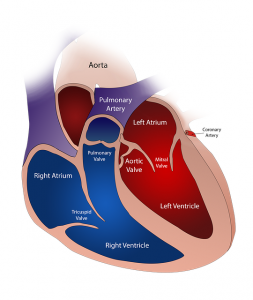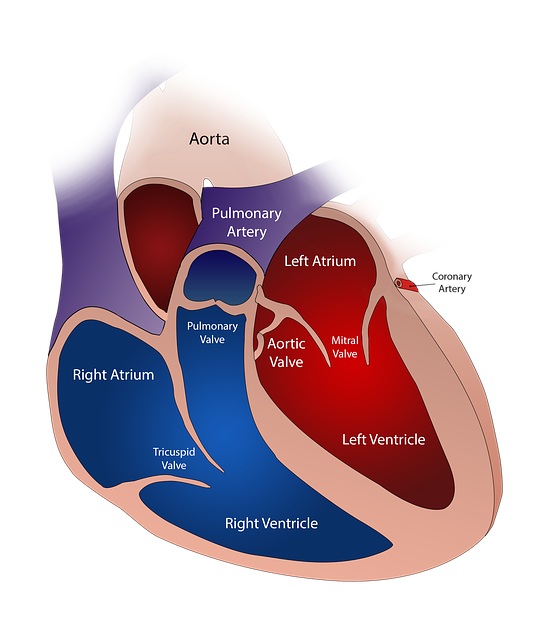There is a special biological interrelationship between Coenzyme Q10 and selenium. From a cardiologist’s perspective, there is a theoretical advantage in using both substances to prevent heart disease if the patients’ intakes are sub-optimal [Alehagen & Aaseth 2015a].

Four years of daily supplementation of senior citizens with a combination of Coenzyme Q10 and selenium resulted in reduced risk of death from heart disease and in improved heart function.
This advantage has been demonstrated in the outcomes of the KiSel-10 Study, a randomized controlled trial that enrolled elderly community dwelling Swedish citizens, average age 78 years, with known low serum selenium status (mean: 67.1 mcg/L) [Alehagen 2013; Alehagen 2016a; Alehagen 2016b].
KiSel-10 Study Supplementation with Coenzyme Q10 and Selenium
The KiSel-10 Study researchers randomly assigned the study participants to an active treatment group (200 mcg organic selenium and 2 x 100 mg Coenzyme Q10) or matching placebos daily for four years. The significantly better outcomes in the active treatment group, compared to the placebo group, are thought provoking [Alehagen 2013; Johansson 2013; Johansson 2015]:
- lower cardiovascular mortality
- better heart function according to cardiac ultrasound examination
- lower plasma concentrations of the heart failure biomarker NT-proBNP
- increased number of days out of hospital
- slower deterioration of health-related quality of life
Persistent Beneficial Effects of Combined CoQ10 and Selenium Supplementation
The researchers continued to follow the KiSel-10 study participants for another eight years after the cessation of the active treatment. They found significant reductions in cardiovascular mortality that persisted until year 12 after the start of the four-year period of combined supplementation [Alehagen 2018a].
Oxidative Stress and Inflammation Effects of Combined CoQ10 and Selenium Supplementation
Prof. Urban Alehagen and the KiSel-10 Study researchers were curious to know what biological mechanisms could explain the significant heart health benefits of combined CoQ10 and selenium supplementation.
They first turned their attention to a possible reduction of oxidative stress and inflammation in the active treatment group. In both cases, they were able to show that the combined supplementation was associated with significant improvements in the blood concentrations of known bio-markers for oxidative stress [Alehagen 2015b] and inflammation [Alehagen 2015c; Alehagen 2019a].
Fibrosis Effects of Combined Coenzyme Q10 and Selenium Supplementation
Next, the KiSel-10 researchers showed that the active treatment group had significantly reduced blood levels of bio-markers for fibrogenic activity compared to the placebo group. They suggested that the reduced fibrosis might explain some of the improvement in heart function in individuals in the combined CoQ10 and selenium group [Alehagen 2018b].
IGF-1 Effects of Combined Coenzyme Q10 and Selenium Supplementation
Insulin-like growth factor-1 (IGF-1) has beneficial anti-inflammatory and antioxidative effects; however, the concentrations of IGF-1 decrease with increasing age and during periods of inflammatory activity.
The KiSel-10 researchers were able to demonstrate that the combined supplementation over four years was significantly associated with increased levels of IGF-1, compared with placebo. They suggested that these effects, along with the effects of reduced oxidative stress, inflammation, and fibrosis, could be part of the mechanistic explanation behind the positive clinical effects on cardiovascular mortality [Alehagen 2017a].
MicroRNA Effects of Combined Coenzyme Q10 and Selenium Supplementation
Searching further, the KiSel-10 researchers found significant changes in circulating microRNA of healthy elderly males in the Coenzyme Q10 and selenium supplementation group. The changes in microRNA could be another part of the biological mechanisms underlying the clinical effects [Alehagen 2017b].
Metabolic Profile Changes and Combined Coenzyme Q10 and Selenium Supplementation
Next, the KiSel-10 Study researchers investigated the effect of the combined supplementation upon the metabolic profiles of a male sub-sample. They found that the active treatment was associated with significant changes in the pentose phosphate, the mevalonate, the beta-oxidation and the xanthine oxidase pathways as well as in the urea cycle and in the levels of the precursors to neurotransmitters of the brain [Alehagen 2019b].
Endothelial Function and Combined CoQ10 and Selenium Supplementation
Knowing that endothelial dysfunction – dysfunction of the inner linings of blood vessels – the KiSel-10 Study researchers investigated the plasma concentrations of the von Willebrand factor and the plasminogen activator inhibitor-1, both of which are strongly associated with endothelial function. They found that the combined supplementation was associated with significantly lower levels of both the von Willebrand factor and the plasminogen activator inhibitor-1 [Alehagen 2020a].
In addition, the researchers decided to investigate the effect of the combined supplementation on the level of D-dimer protein fragments in the blood, as D-dimer is known as a biomarker of thrombo-embolism, increased inflammation, and endothelial dysfunction. Elevated levels of D-dimer are associated with increased cardiovascular mortality in ischemic heart disease. The sub-study results showed that 48 months of the combined supplementation with selenium and Coenzyme Q10 prevented increases in plasma D-dimer [Alehagen 2021].
Effects of the Combined CoQ10 and Selenium Supplementation on Fructosamine Levels
By the year 2020, the researchers had examined the effects of the combined supplementation on several cardiovascular mortality risk factors such as inflammation, oxidative stress, fibrosis, and microRNA expression. Because they knew that fructosamine is a biomarker of long-term glycemic control and a biomarker for increased risk of heart disease and death, even in non-diabetics, they analyzed the impact of CoQ10 and selenium supplementation on the concentration of fructosamine. They found significantly lower concentrations of fructosamine in the study participants who had been supplemented with Coenzyme Q10 and selenium for 42 months, compared to those on the placebo [Alehagen 2020b].
Effects on Renal Function of the Combined CoQ10 and Selenium Supplementation
The KiSel-10 Study researchers knew that low selenium status and the severity of kidney disease are associated with one another; they knew, moreover, that CoQ10 status is generally decreased in kidney disease. In their analyses of the KiSel-10 Study data, they found that 1) low selenium status was related to impaired renal function and 2) supplementation with selenium and Coenzyme Q10 resulted in significantly improved renal function [Alehagen 2020c].
Bottom Line: Biological Interrelationship Between Coenzyme Q10 and Selenium Beneficial for Heart Health
For good heart health, the best evidence seems to suggest a serum/plasma selenium concentration around 125 mcg/L [Rayman 2020] and a serum/plasma CoQ10 concentration above 2.00 mg/L [Mortensen 2014].
The heart health benefits from combined CoQ10 and selenium supplementation are especially important for individuals who live in selenium-poor regions and for elderly individuals, whose internal bio-synthesis of Coenzyme Q10 has declined with increasing age.
Read our key article about CoQ10 and cardiovascular health in elderly people
Sources
Alehagen U, Johansson P, Björnstedt M, Rosén A. Cardiovascular mortality and N-terminal-proBNP reduced after combined selenium and coenzyme Q10 supplementation: A 5-year prospective randomized double-blind placebo-controlled trial. Int J Cardiol. 2013;167:1860-1866.
Alehagen U, Aaseth J. Selenium and coenzyme Q10 interrelationship in cardiovascular diseases – A clinician s point of view. J Trace Elem Med Biol. 2015a;31:157-62.
Alehagen U, Aaseth J, Johansson P. Less increase of copeptin and MR-proADM due to intervention with selenium and coenzyme Q10 combined: Results from a 4-year prospective randomized double-blind placebo-controlled trial among elderly Swedish citizens. Biofactors. 2015b;41:443-52.
Alehagen U, Lindahl TL, Aaseth J, Svensson E. Levels of sP-selectin and hs-CRP decrease with dietary intervention with selenium and coenzyme Q10 combined: a secondary analysis of a randomized clinical trial. PLoS One. 2015c;10:e0137680.
Alehagen U, Aaseth J, Johansson P. Reduced cardiovascular mortality 10 years after supplementation with selenium and coenzyme Q10 for four years: follow-up results of a prospective randomized double- blind placebo-controlled trial. PLoS One. 2015d;10(12):e0141641.
Alehagen U, Johansson P, Björnstedt M, Rosén A. Relatively high mortality risk in elderly Swedish subjects with low selenium status. Eur J Clin Nutr. 2016a;70:91-6.
Alehagen U, Alexander J, Aaseth J. Supplementation with selenium and coenzyme Q10 reduces cardiovascular mortality in elderly with low selenium status: a secondary analysis of a randomised clinical trial. PLoS One. 2016b;11:e0157541.
Alehagen U, Johansson P, Aaseth J, Alexander J. Increase in insulin-like growth factor 1 (IGF-1) and insulin-like growth factor binding protein 1 after supplementation with selenium and coenzyme Q10. PLoS One. 2017a;12:e0178614.
Alehagen U, Johansson P, Aaseth J, Alexander J. Significant changes in circulating microRNA by dietary supplementation of selenium and coenzyme Q10 in healthy elderly males: A subgroup analysis. PLoS One. 2017b;12:e0174880.
Alehagen U, Aaseth J, Alexander J, Johansson P. Still reduced cardiovascular mortality 12 years after supplementation with selenium and coenzyme Q10 for four years: A validation of previous 10-year follow-up results of a prospective randomized controlled trial. PLoS One. 2018a;13:e0193120 .
Alehagen U, Aaseth J, Alexander J, Svensson E. Less fibrosis in elderly subjects supplemented with selenium and coenzyme Q10: A mechanism behind reduced cardiovascular mortality? Biofactors. 2018b;44:137-147.
Alehagen U, Alexander J, Aaseth J, Larsson A. Decrease in inflammatory biomarker concentration by intervention with selenium and coenzyme Q10: a subanalysis of osteopontin, osteoprotergerin, TNFr1, TNFr2 and TWEAK. J Inflamm (Lond). 2019a;16:5.
Alehagen U, Johansson P, Aaseth J, Alexander J. Significant changes in metabolic profiles after intervention with selenium and coenzyme Q10 in an elderly population. Biomolecules. 2019b;10:E553.
Alehagen U, Alexander J, Aaseth J, Larsson A. Significant decrease of von Willebrand factor and plasminogen activator inhibitor-1 by providing supplementation with selenium and Coenzyme Q10 to an elderly population. European Journal of Nutrition. 2020a;59:3581-3590.
Alehagen U, Aaseth J, Alexander J, Johansson P. Supplemental selenium and coenzyme Q10 reduce glycation along with cardiovascular mortality in an elderly population with low selenium status. Journal of Trace Elements in Medicine and Biology. 2020b;61:126541.
Alehagen U, Brismar K, Alexander J, Aaseth J. Selenium and Coenzyme Q10 supplementation improves renal function in elderly deficient in selenium: observational results and results from a subgroup analysis of a randomised placebo-controlled trial. Nutrients. 2020c;12(12):3780.
Alehagen U, Aaseth J, Lindahl TL, Alexander J. Dietary supplementation with selenium and Coenzyme Q10 prevents increase in plasma D-dimer while lowering cardiovascular mortality in an elderly Swedish population. Nutrients. 2021;13:1344.
Johansson P, Dahlstrom O, Dahlstrom U, Alehagen U. Effect of selenium and Q10 on the cardiac biomarker NT-proBNP. Scand Cardiovasc J. 2013;47:281-8.
Johansson P, Dahlstrom O, Dahlstrom U, Alehagen U. Improved health-related quality of life, and more days out of hospital with supplementation with selenium and coenzyme Q10 combined. J Nutr Health Aging. 2015;19:870-7.
Mortensen SA, Rosenfeldt F, Kumar A, Dolliner P, Filipiak KJ, Pella D, Alehagen U, Steurer G, Littarru GP; Q-SYMBIO Study Investigators. The effect of coenzyme Q10 on morbidity and mortality in chronic heart failure: results from Q-SYMBIO: a randomized double-blind trial. JACC Heart Fail. 2014 Dec;2(6):641-9.
Rayman MP. Selenium intake, status, and health: a complex relationship. Hormones (Athens). 2020 Mar;19(1):9-14.
The information presented in this review article is not intended as medical advice and should not be used as such.
15 March 2022









Leave A Comment